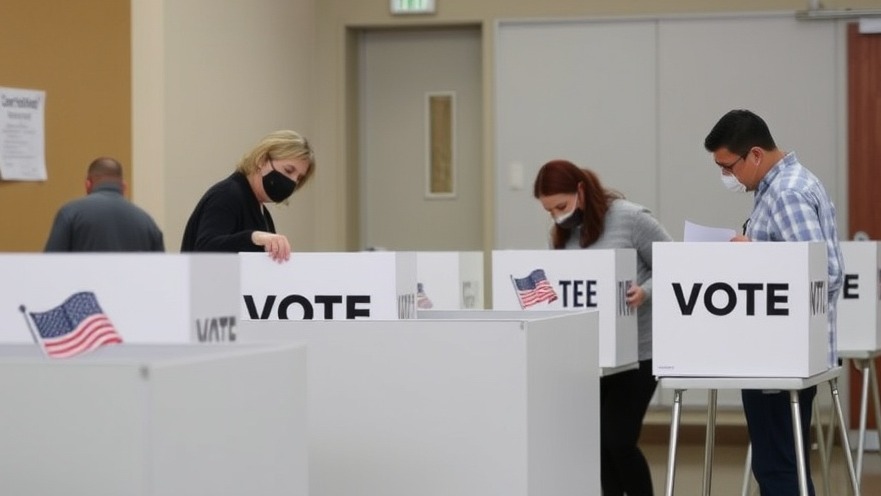
Texas Voters Face Crucial Decisions on Ballot Propositions
This November, Texas voters will have the opportunity to weigh in on 17 proposed constitutional amendments, which could significantly impact property taxes for homeowners and businesses across the state. The election, set for November 4, comes after the Texas Legislature overwhelmingly supported the amendments earlier this year.
Understanding the Proposed Tax Cuts
Among the primary amendments on the ballot, the proposals primarily focus on substantial tax reductions aimed at a variety of groups, including homeowners, businesses, elderly residents, and veterans' spouses. With $51 billion earmarked for property tax cuts in the upcoming state budget, advocates claim these measures are essential for maintaining Texas's reputation as a business-friendly environment.
As Governor Greg Abbott and other proponents assert, these tax cuts help sustain economic growth in a state that thrives on its competitive edge. However, this view is met with skepticism from others, including budget analysts like Shannon Halbrook from Every Texan, who warn that such measures might lead to long-term fiscal challenges. "We need to prioritize tax relief while ensuring there are adequate funds for essential public services," she states.
Financial Implications for Local Governments
Despite the alluring prospect of tax cuts, local governments in Texas find themselves facing an uphill battle. With rising inflation and stringent state-imposed limits on property tax collections, many city and county officials are in crisis mode. Localities might resort to raising taxes or cutting essential services just as inflation squeezes budgets tighter.
For instance, voters in Austin will also encounter local propositions focused on increasing property tax rates, highlighting the complexities voters must navigate in balancing their immediate financial relief against potential long-term consequences.
Registration and Voting Guidelines
It's crucial for Texans wishing to participate in this pivotal election to check their voter registration status by the deadline on October 6. The early voting period spans from October 20-31, with election day on November 4. Additionally, for those wishing to vote by mail, applications must be submitted by October 24.
For a comprehensive guide on voting requirements in Texas, citizens can visit the state's election office website.
What's At Stake?
Ultimately, the outcome of these propositions could reshape the state's financial landscape, with widespread implications for essential services, from education to healthcare. If the propositions pass, the momentum may be difficult to reverse in future legislative sessions, as any amendments would require a lengthy process to undo.
The reality remains that while tax breaks may appease many today, the sustainability of these financial strategies is paramount. Voters are going to need to consider the potential ramifications of their choices this November practically.
Call to Action: Be a Informed Voter
This upcoming election is a crucial opportunity for Texans to voice their opinions. Engaging in local democracy is vital for the future of public services and economic health in Texas. Make sure to be informed, registered, and ready to cast your vote!
 Add Element
Add Element  Add Row
Add Row 



Write A Comment